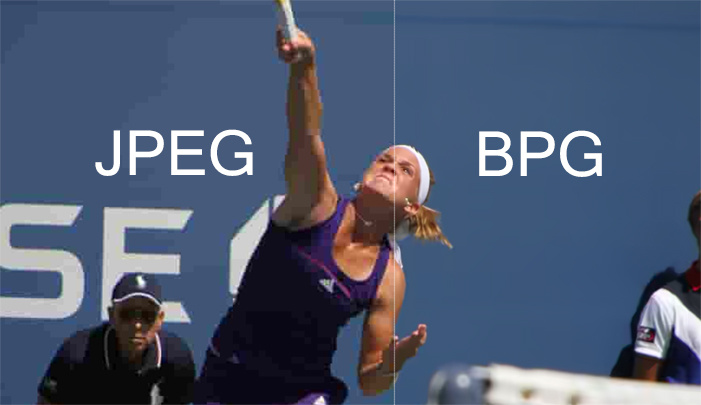Today I'm going to talk about an image revolution. Either you work with images or just use them (exploring the Internet, taking photographs, etc), you'll be amazed about what's about to be revealed.
When we first met the JPG format, we thought there had happened a miracle, because Internet was surfed using 7k or 14k bps. Later 25k and 33k modems came, but still... We used the phone line to connect, and it was clearly unstable. It could take half an hour to download just a few megabytes, or even just one. The websites were so simple that they were almost all in text with small pics in bmp. And... jpg arrived to the common people.
The time for the beautiful Internet had just arrived:
Suddenly many web pages started to implement images in their navigation bars, full of colours, adding pictures, or even mixed up with the text. Some of them were links to another pages. The image revolution came to the known Internet. By that time you'll remember the "best" search engine: Yahoo. In Spain we used Altavista aswell.
 So... What's new in this horizon? Mobile platform is extending itself to our very hands, one user at a time, but that number is growing exponentially as we speak, and there will be many many things connected to the Internet, a few times more than our current total population. And not all of those things will be computers, either mobile or desktops... There will be more facial recognition than governments will admit, more intelligent cars using images and sensors, ... even drones. And do you know what's the biggest use of bandwidth most of the times? Correct, one of the main problems is the video and image streaming. Many videos are made by adding thousands of compressed images, if not all of them. And there is something coming this way about the quality and the compression.
So... What's new in this horizon? Mobile platform is extending itself to our very hands, one user at a time, but that number is growing exponentially as we speak, and there will be many many things connected to the Internet, a few times more than our current total population. And not all of those things will be computers, either mobile or desktops... There will be more facial recognition than governments will admit, more intelligent cars using images and sensors, ... even drones. And do you know what's the biggest use of bandwidth most of the times? Correct, one of the main problems is the video and image streaming. Many videos are made by adding thousands of compressed images, if not all of them. And there is something coming this way about the quality and the compression.As users we like high quality images... Oh, those zoom in and out functionality in our smart phones (let's call them phones from now on, since almost everyone has one)... But we've seen that even our best photographs, and specially those shared to us, are pixelated. Not all of them, but many. Same goes for videos.
One of the revolutions we're currently living on, is that everyone is a camera out there, every single person can record, share, comment, and make something go viral in the time a reporter use to get his camera on his/her shoulders. Thanks social media for that. I don't know how you get informed, by in my case I use some apps that get feeds from other pages, and so on. This is becoming an issue in my "advanced" country (specially after the "Google tax" law they just made, the reason for Google to shut down its Google News page in Spain, but that's long enough to be discussed in an entire post).
As I was telling you, we're about to experience a change, that will modify images, photographs, videos, but specially the bandwidth you use, your apps use... the web pages use... And what you'll "feel" will probably be more the using time, the downloading time, and the loading time in those cases. BPG is the next solution, and it will be as big change as JPG was to BMP.
I'll share a comparison.
After seeing this, what we can only say is... how long will last this old fashioned jpg in the cyber world? Bets are on the board. But I think it won't be there for the next 10 years, although we'll notice its disappearance sooner than that date.
By the way, BPG means "Better portable image", for those who wonder what those letters mean.
Thanks for reading!
P.S: Leave a comment if you're interested in debate this subject, or know about the matter and want to share.


No comments:
Post a Comment
Speak up your mind. We build and "program" this world together ;)